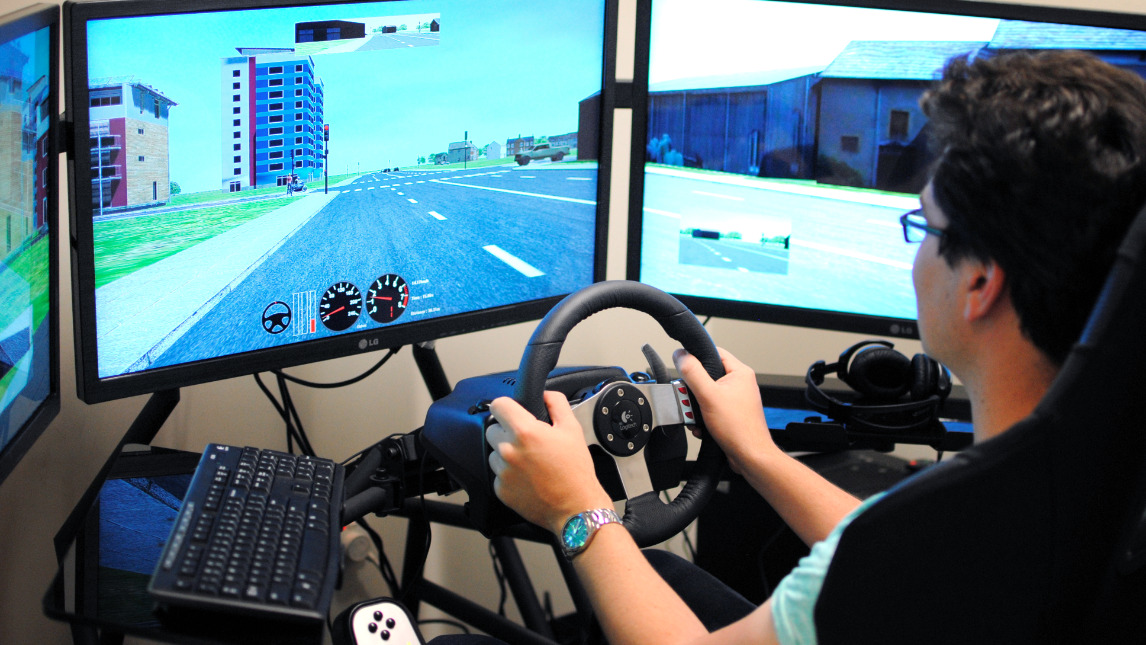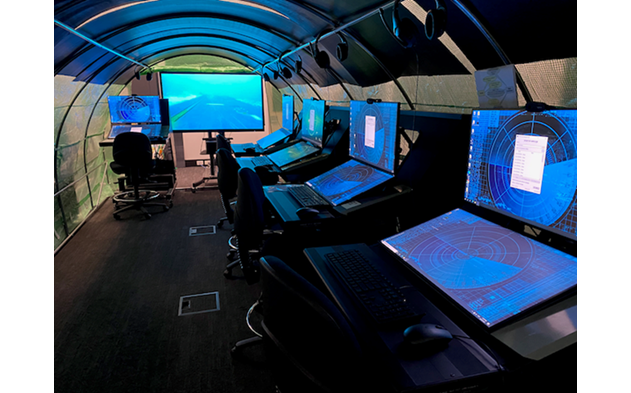Research
Industrial/organisational psychology and human factors
Examining the human element of work to create better workplaces
In an increasingly technology-based world, workplaces and the nature of work have changed dramatically. The fields of human factors and industrial/organisational psychology deal with the human element of work, as well as the interactions of humans with the technological and social elements of systems.
This involves improving the organisational and physical structure of the workplace to accommodate the cognitive, physiological and motivational capabilities and limitations of humans.
Our work investigates the performance and wellbeing of workers in various roles by considering both system factors such as work design and management style, and individual factors such as fatigue, problem-solving abilities and situational awareness.
Our research seeks to answer questions such as:
- How do we attract and select job applicants to optimise person-role fit?
- How can we design workplaces and work roles to enable the workforce to perform effectively, efficiently and safely?
Research laboratories
- Attention and Human Behaviour Laboratory
-

Our research is at the interface between key human cognitive abilities, such as attention and multitasking, and human behaviours across a variety of situations.
Over a century of 'basic' experimental research has taught us a lot about human cognition and perception, as well as their underlying neural mechanisms. However, we know much less about how these abilities differ across individuals and groups, or how these abilities influence everyday behaviours, like driving, or performance in specialised jobs, like the military or air-traffic control.
The goal of our work is to answer these questions by breaking through traditional divides between basic and applied research, and to focus on building a reciprocal relationship in which basic research can guide practical questions, and practical outcomes can give new insights into basic processes.
Attention and Human Behaviour LaboratoryContact us
- Professor Troy Visser (Lab director)
- Individual Differences Laboratory
-
Research in the Individual Differences Laboratory is devoted primarily to the topics of cognitive abilities, including financial literacy, as well as personality, especially narcissism. Recent work undertaken with honours and postgraduate students has attempted to understand the nature of individual differences in final literacy and face processing abilities. Additionally, work on the self-estimation of abilities and grandiose narcissism has been undertaken.
Contact us

- Human Factors and Applied Cognition (HUFAC) Laboratory
-

The Human Factors and Applied Cognition (HUFAC) Laboratory conducts theory-driven research to understand the cognitive mechanisms that underlie human performance in safety-critical work contexts. To achieve this we conduct both basic experimental psychology research and research using simulations of air traffic control, submarine track management, unmanned vehicle control, and driving.
The core aim is to strengthen the link between psychological science and practice by publishing in world-class journals, and transferring knowledge and skills as directly as possible back to industry.
Core questions addressed in the HUFAC Laboratory include:
- How can task automation be designed to maximise operator and system efficiency/safety?
- How do individuals remember to perform delayed intentions when multi-tasking (prospective memory), and how can the negative impact of task interruptions be minimised?
- What are the mechanisms by which individuals develop understanding the current state of their tasks and anticipate the future (situation awareness), and to what extent can this be trained?
Funding
The HUFAC Laboratory has received a significant amount of funding from bodies such as:
- Australian Research Council
- Air Services Australia
- Defence Science and Technology Group
- Defence Research and Development (Canada)
- Neurotrauma Research Program
- Department of Airforce (Asian Office of Aerospace Research and Development)
Contact us
- Psychology at Work Lab
-
Industrial and organisational psychology is a specialist area that applies psychological knowledge and skills to workplaces with the aim of improving organisational effectiveness and the quality of work life.
The Psychology at Work Lab is staffed by Organisational Psychologist practitioners, academics, and postgraduate students (under the supervision of experienced academics and registered psychologists). The lab conducts research, consultancy, industry placement activity and training with a wide range of industry partners, including government, national and multinational corporations, and not-for-profit partner organisations. We collaborate by developing an in-depth understanding of the partner organisation's situation and needs, and applying science-driven approaches, using a multifaceted team of academics, practitioners and students.

We work with individuals, teams and organisations to improve work-related outcomes such as performance, job satisfaction, safety and wellbeing.
Our areas of focus to achieve such improved outcomes include:
-
Selection and assessment
-
Diversity
-
Personality, attitudes and motivation
-
Work behaviour
-
Training and development
-
Job and organisational design
-
Team composition and processes
-
Leadership
-
Organisational culture
-
Change management.
Our research methodologies include field- and lab-based studies as well as online studies, where data is collected through surveys, interviews, observations, meta-analyses, large industry databases, or a combination thereof, and analysed based on a thorough understanding of available and applicable statistical methods.
Our team can offer customised, up-to-date training in all of the focus areas listed above. If you are interested in partnering with us for research, consulting, placement activity, or training, please do not hesitate to get in touch to discuss opportunities.Contact us: [email protected]
- Dr Jane Chong
- Associate Professor Guy Curtis
- Dr Anu Jolly, Organisational Psychologist
- Dr Lisette Kanse
- Dr Darja Kragt
- Lorraine Moolman, Organisational Psychologist
- Liz Pritchard, Organisational Psychologist
- Associate Professor Serena Wee
- Dr Laura Fruhen (Adjunct)
- Shannon Butcher, Organisational Psychologist
- Dr Jill Latham, Organisational Psychologist
-
- Healthcare Human Factors Laboratory
-
We conduct human factors research with a focus on healthcare settings. We apply theories and methodologies from human factors psychology to understand how healthcare professionals (e.g. doctors, nurses, hospital administrators, etc.) carry out their jobs in their work environment (e.g. operating theatres, hospital wards, etc.), and identify human-centred solutions to support/enhance their work performance. The aim is to help healthcare professionals perform to their best abilities efficiently and safely.
Our research is relevant to, and draws on knowledge from, applied cognition, perception and attention, and I/O psychology. That’s why you see our Lab spanning across more than one research area in the School. We use methodology ranging from laboratory-based experiments, clinical simulations, to observational studies.
Current interests in the lab:

- Designing tools to help clinicians multitask - Clinicians often have to multitask (e.g. calculating medication dosage for Patient A and paying attention to Patient B’s decreasing heart rate), we are interested in finding out clinicians’ performance bottleneck in such situations and design appropriate technology to help them manage their attention effectively.
- Understanding clinicians’ attention - We are interested in finding out whether clinicians from different specialisation would have different attentional capabilities. If so, what would this tell us about human attention?
- Human factors training in hospitals - Hospitals in WA have started providing human factors training to their staff (including doctors, nurses, allied health, etc.) and we are interested in finding ways to measure the impact of human factors training on work performance. In this line of work, we collaborate with Dr Thy Do, Consultant Anaesthetist, at Royal Perth Hospital and Operational Director of the NEXUS Human Factors Training Program.
Contact Us
- Western Australia Centre for Road Safety Research (WACRSR) Laboratory
-

The WACRSR has been established to conduct research across the Safe System approach. The cornerstones of the Safe System Approach are — safe roads and roadsides, safe road use, safe speeds, safe vehicles and safe post-crash care.
This approach represents a paradigm shift in road safety and takes a holistic view of the road transport system and the interactions of its various elements to create a road transport system in which human error does not result in death or serious injury.
At WACRSR, our research focuses on road safety including: driver behaviour, vehicle safety, road and other infrastructure safety, speed, general causes of road crashes and trauma, new, emerging and existing safety solutions to prevent and/or reduce road trauma, contributing factors to injury and death in road crashes, injury prevention in road crashes and post-crash.
Contact Us









